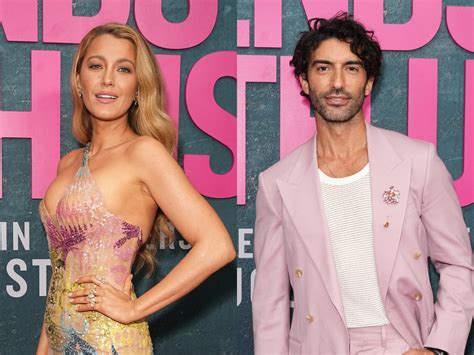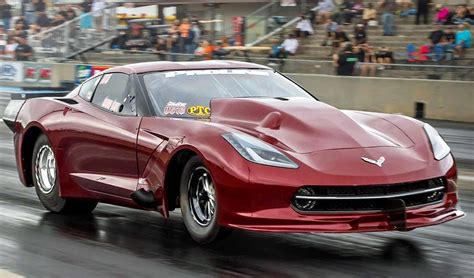
Ryan Reynolds and Blake Lively celebrated a legal victory this week after a $400 million lawsuit against them was dismissed, prompting Justin Baldoni to send a message of support emphasizing the power of kindness, stating “Kindness Wins.” The lawsuit, initiated by a Utah-based company called Advanced Aviation Team, alleges that Reynolds’ company, Maximum Effort Marketing, and Lively misappropriated the company’s aerial photography and videography in social media posts.
A federal judge dismissed the suit on Tuesday, leading to the resolution of a dispute that has been closely watched in entertainment and legal circles. Baldoni’s public affirmation underscores a broader theme of overcoming adversity with positivity.
Blake Lively and Ryan Reynolds won a legal battle when a federal judge dismissed a $400 million lawsuit against them. The lawsuit, filed by Advanced Aviation Team, a Utah-based company, accused Ryan Reynolds’ marketing company, Maximum Effort Marketing, and Lively of copyright infringement through the use of their aerial photography and videography on social media platforms. In response to the victory, actor Justin Baldoni offered his support and emphasized the importance of kindness with the message, “Kindness Wins.”
Background of the Lawsuit
Advanced Aviation Team (AAT) filed the lawsuit, alleging that Maximum Effort Marketing and Lively used AAT’s copyrighted material without permission. The company claimed that this unauthorized use caused significant financial damage, hence the $400 million claim. AAT specializes in aerial cinematography and photography, providing services to various industries. Their suit pinpointed specific instances where the company’s content was purportedly used on Lively’s and Maximum Effort’s social media accounts.
The legal documents stated that AAT had meticulously built a brand reputation for high-quality aerial imagery, and the alleged infringement undermined their market position and revenue streams. The company further claimed that attempts to reach a resolution outside of court were unsuccessful, leading them to pursue legal action to protect their intellectual property rights. The details of the content in question and how it was used were central to the litigation. AAT argued that the use of their material boosted the social media engagement and marketing efforts of Reynolds and Lively, directly benefiting them financially and in terms of brand recognition.
Details of the Dismissal
The U.S. District Court Judge overseeing the case dismissed the lawsuit on Tuesday. The judge cited a lack of sufficient evidence to support AAT’s claims of copyright infringement. According to court documents, AAT failed to provide concrete evidence demonstrating substantial similarity between their copyrighted works and the content used by Maximum Effort Marketing and Lively. The judge noted that AAT’s arguments were speculative and lacked the specificity required to sustain a copyright infringement claim.
The court also addressed the issue of fair use, suggesting that even if there was a similarity between the works, the defendants’ use of the material might qualify as fair use, given the transformative nature of the content and the context in which it was used. Fair use is a legal doctrine that allows the use of copyrighted material without permission from the copyright holder under certain circumstances, such as for commentary, criticism, education, or news reporting.
The dismissal effectively ends the legal challenge, allowing Reynolds and Lively to avoid a potentially costly and protracted court battle. Legal experts have commented that the dismissal underscores the importance of providing detailed and compelling evidence when pursuing copyright infringement claims, especially against high-profile individuals and companies.
Justin Baldoni’s Message of Support
Following the dismissal, Justin Baldoni, known for his roles in “Jane the Virgin” and “Five Feet Apart,” took to social media to express his support for Reynolds and Lively. Baldoni’s message, “Kindness Wins,” was a direct response to the outcome of the lawsuit. His statement resonated with many, highlighting the idea that positive values and ethical conduct can prevail in the face of adversity.
Baldoni has been a vocal advocate for kindness, empathy, and social responsibility. His message not only supports Reynolds and Lively but also serves as a broader reminder of the importance of maintaining integrity and compassion in all aspects of life, including business and legal matters. Baldoni’s public support reflects a growing trend among celebrities to use their platforms to promote positive messages and stand up for values they believe in.
His simple yet powerful statement has been widely shared and discussed, reinforcing the idea that kindness and ethical behavior can lead to favorable outcomes. Baldoni’s support adds a layer of public affirmation to Reynolds’ and Lively’s victory, suggesting that their approach to the situation was perceived as fair and just.
Ryan Reynolds and Blake Lively’s Reaction
Neither Ryan Reynolds nor Blake Lively have issued formal statements following the dismissal of the lawsuit. However, sources close to the couple have indicated that they are pleased with the outcome and relieved that the matter has been resolved. They have remained largely silent on the issue, allowing the legal process to unfold without public commentary.
Reynolds, in particular, has a reputation for handling controversies with humor and grace. While he is known for his witty social media presence, he has refrained from commenting on the lawsuit directly, possibly to avoid further complicating the legal proceedings. The couple’s silence reflects a strategic approach to managing the situation, focusing on the legal aspects while avoiding public disputes.
Those close to them suggest that Reynolds and Lively are focused on their respective projects and family life, and the dismissal allows them to move forward without the distraction of ongoing litigation. Their ability to maintain a low profile throughout the process has been noted as a sign of their experience in navigating the complexities of fame and public scrutiny.
Legal Implications and Copyright Law
The lawsuit and its dismissal raise several important points about copyright law and the use of social media for marketing purposes. Copyright law protects original works of authorship, including photographs and videos, from unauthorized use. However, there are exceptions, such as fair use, that allow for the use of copyrighted material under certain circumstances.
In this case, the judge’s decision to dismiss the lawsuit underscores the importance of proving substantial similarity and lack of fair use when pursuing a copyright infringement claim. The ruling serves as a reminder to content creators to properly license or obtain permission for the use of copyrighted material, especially in commercial contexts such as marketing and advertising.
The case also highlights the challenges of enforcing copyright law in the digital age, where content can be easily shared and repurposed online. Social media platforms have become a primary battleground for copyright disputes, as companies and individuals seek to protect their intellectual property rights in a rapidly evolving digital landscape.
The outcome of the lawsuit may influence how companies approach the use of social media for marketing, encouraging greater diligence in ensuring compliance with copyright laws. Legal experts advise businesses to implement robust policies and procedures for obtaining necessary permissions and licenses for content used in their marketing campaigns.
The Broader Context: Celebrity Lawsuits and Public Image
The lawsuit against Reynolds and Lively is part of a broader trend of legal disputes involving celebrities and their companies. High-profile individuals are often targets of litigation, ranging from copyright infringement claims to defamation suits and contract disputes. These lawsuits can have significant implications for a celebrity’s public image and professional career.
In many cases, the legal battles become highly publicized, attracting media attention and public scrutiny. The way celebrities handle these situations can impact their reputation and influence their fan base. Transparency, ethical conduct, and a commitment to resolving disputes fairly are often seen as positive attributes.
The dismissal of the lawsuit against Reynolds and Lively allows them to avoid the negative publicity that often accompanies drawn-out legal battles. By resolving the matter quickly and efficiently, they can maintain their positive public image and focus on their professional endeavors.
Advanced Aviation Team’s Perspective
As of the current information available, Advanced Aviation Team has not released a public statement regarding the dismissal of the lawsuit. It is not uncommon for companies to refrain from commenting on legal matters, particularly after an unfavorable ruling. The decision not to comment may be part of a broader legal strategy or a desire to avoid further publicity.
The company may have the option to appeal the judge’s decision, although it is uncertain whether they will pursue this course of action. An appeal would require AAT to present new evidence or arguments that could persuade a higher court to overturn the original ruling. Without a statement from AAT, it is difficult to ascertain their future plans or their perspective on the outcome of the lawsuit.
The legal community is closely watching to see if AAT will take further action. The case serves as an important example of the challenges and complexities of copyright law in the digital age, and any further developments could have significant implications for the industry.
Conclusion
The dismissal of the $400 million lawsuit against Ryan Reynolds and Blake Lively marks a significant legal victory for the couple. Justin Baldoni’s message of “Kindness Wins” adds a layer of public support, underscoring the importance of ethical conduct and positive values. The case highlights the complexities of copyright law in the digital age and the need for businesses to be diligent in obtaining necessary permissions for content used in marketing campaigns. As Reynolds and Lively move forward, the resolution of this legal matter allows them to focus on their respective projects and maintain their positive public image.
Expanded Analysis:
The case of Advanced Aviation Team v. Ryan Reynolds and Blake Lively illuminates several critical aspects of modern copyright law, particularly in the context of digital media and celebrity endorsements. The dismissal of the lawsuit underscores the high burden of proof required in copyright infringement cases and the importance of understanding fair use principles.
Firstly, the requirement of demonstrating “substantial similarity” between the copyrighted work and the allegedly infringing material is a key element in any copyright claim. In this instance, the judge determined that AAT failed to provide sufficient evidence that the content used by Maximum Effort Marketing and Blake Lively was substantially similar to their copyrighted aerial photography and videography. This highlights the need for plaintiffs in copyright cases to present detailed, comparative analyses showing direct and significant overlap in protected elements of the works. General similarities or broad themes are often insufficient to establish infringement.
Secondly, the concept of “fair use” provides a significant defense against copyright claims. Fair use allows the use of copyrighted material without permission for purposes such as criticism, commentary, news reporting, teaching, scholarship, and research. The determination of fair use involves a balancing test, considering factors such as the purpose and character of the use, the nature of the copyrighted work, the amount and substantiality of the portion used, and the effect of the use on the potential market for or value of the copyrighted work. While the judge did not definitively rule on fair use, the court suggested that even if there was similarity, the use might qualify as fair use, given the context and transformative nature of the content. This suggests that the use of the aerial footage might have been considered commentary or promotion, falling within the scope of fair use.
The lawsuit also highlights the challenges of enforcing copyright in the age of social media. Content is easily shared, repurposed, and transformed, making it difficult to track and control the use of copyrighted material. Social media platforms have become a hotbed for copyright disputes, and businesses and individuals must be vigilant in protecting their intellectual property rights. This often involves monitoring social media for unauthorized use of their content, sending takedown notices to platforms, and, in some cases, pursuing legal action.
The involvement of celebrities like Ryan Reynolds and Blake Lively adds another layer of complexity to the case. Celebrities’ social media accounts often serve as powerful marketing tools, and their use of copyrighted material, even unintentionally, can lead to legal challenges. This underscores the importance of celebrities and their marketing teams being diligent in obtaining the necessary licenses and permissions for any content they use on social media.
Justin Baldoni’s message of “Kindness Wins” reflects a broader sentiment that ethical behavior and positive values should prevail in business and legal matters. While the legal outcome was favorable for Reynolds and Lively, Baldoni’s message emphasizes the importance of conducting business with integrity and respect for the rights of others. This is particularly relevant in the entertainment industry, where reputation and public image are critical assets.
The case also raises questions about the potential financial impact of copyright infringement. Advanced Aviation Team sought $400 million in damages, claiming that the unauthorized use of their content caused significant financial harm. While the dismissal of the lawsuit prevents AAT from recovering these damages, the case highlights the potential for substantial financial exposure in copyright infringement cases. This underscores the importance of businesses taking copyright law seriously and implementing robust policies and procedures to ensure compliance.
In conclusion, the dismissal of the lawsuit against Ryan Reynolds and Blake Lively provides valuable insights into modern copyright law and the challenges of enforcing it in the digital age. The case underscores the importance of demonstrating substantial similarity, understanding fair use principles, and being diligent in obtaining necessary licenses and permissions for content used on social media. Justin Baldoni’s message of “Kindness Wins” serves as a reminder of the importance of ethical conduct and positive values in business and legal matters.
Further Considerations:
Beyond the specific legal and business implications, the case also touches upon broader cultural and societal themes related to celebrity culture, social media influence, and the perception of justice. The fact that the lawsuit involved high-profile celebrities like Ryan Reynolds and Blake Lively ensured that it garnered significant media attention and public interest. This attention can amplify the impact of the legal outcome, shaping public perception and potentially influencing future legal strategies in similar cases.
The role of social media in this dispute is also noteworthy. The lawsuit centered on the alleged unauthorized use of copyrighted material on social media platforms, highlighting the increasing importance of these platforms in marketing, advertising, and content distribution. Social media has become a primary battleground for copyright disputes, as companies and individuals seek to protect their intellectual property rights in a rapidly evolving digital landscape. The case underscores the need for clear and effective policies and procedures for managing content on social media and ensuring compliance with copyright laws.
Justin Baldoni’s message of “Kindness Wins” can be interpreted in several ways. On one level, it is a simple expression of support for Reynolds and Lively. However, it also carries a deeper message about the importance of ethical conduct and positive values. In a world often characterized by conflict and negativity, Baldoni’s message serves as a reminder that kindness and compassion can prevail. This message resonates with many people, particularly in the context of celebrity culture, where public figures are often scrutinized and judged harshly.
The lawsuit and its dismissal also raise questions about the relationship between intellectual property rights and creative expression. While copyright law is designed to protect the rights of creators and incentivize innovation, it can also be seen as a barrier to creative expression and the free flow of information. Striking the right balance between protecting intellectual property rights and fostering creativity is a complex and ongoing challenge. The outcome of the lawsuit suggests that courts are willing to consider the context and purpose of the use of copyrighted material when determining whether infringement has occurred.
Finally, the case highlights the importance of legal expertise in navigating complex legal disputes. Both Advanced Aviation Team and Ryan Reynolds and Blake Lively likely relied on experienced attorneys to represent their interests and navigate the legal process. The outcome of the lawsuit underscores the value of competent legal representation and the importance of understanding the intricacies of copyright law.
Frequently Asked Questions (FAQ):
-
What was the lawsuit about?
- The lawsuit, filed by Advanced Aviation Team (AAT), alleged that Ryan Reynolds’ marketing company, Maximum Effort Marketing, and Blake Lively used AAT’s copyrighted aerial photography and videography on social media without permission, seeking $400 million in damages.
-
Why was the lawsuit dismissed?
- A federal judge dismissed the lawsuit, stating that AAT failed to provide sufficient evidence demonstrating substantial similarity between their copyrighted works and the content used by Maximum Effort Marketing and Lively.
-
What is Justin Baldoni’s connection to the case?
- Justin Baldoni, an actor known for his roles in “Jane the Virgin” and “Five Feet Apart,” publicly supported Ryan Reynolds and Blake Lively after the dismissal of the lawsuit, posting the message “Kindness Wins” on social media.
-
What does the term “fair use” mean in copyright law?
- “Fair use” is a legal doctrine that allows the use of copyrighted material without permission from the copyright holder under certain circumstances, such as for commentary, criticism, education, or news reporting.
-
Did Ryan Reynolds or Blake Lively comment publicly on the lawsuit?
- Neither Ryan Reynolds nor Blake Lively have issued formal statements regarding the dismissal of the lawsuit. Sources close to the couple have indicated that they are pleased with the outcome but have otherwise remained silent on the matter.
Additional FAQ:
-
Who is Advanced Aviation Team (AAT)?
- Advanced Aviation Team (AAT) is a Utah-based company specializing in aerial cinematography and photography. They provide services to various industries and alleged that their copyrighted material was used without permission by Maximum Effort Marketing and Blake Lively.
-
What are the potential implications of this case for social media marketing?
- The case highlights the importance of obtaining proper licenses and permissions for using copyrighted material in social media marketing. It underscores the need for businesses to implement robust policies and procedures to ensure compliance with copyright laws and avoid potential legal challenges.
-
What kind of evidence did AAT need to present to win the case?
- AAT needed to present concrete evidence demonstrating substantial similarity between their copyrighted works and the content used by Maximum Effort Marketing and Lively. This would involve a detailed, comparative analysis showing direct and significant overlap in protected elements of the works.
-
Could AAT appeal the judge’s decision?
- Yes, AAT has the option to appeal the judge’s decision. An appeal would require AAT to present new evidence or arguments that could persuade a higher court to overturn the original ruling.
-
What other types of legal issues do celebrities often face?
- Celebrities often face a range of legal issues, including defamation suits, contract disputes, endorsement deals gone wrong, and intellectual property rights issues. These lawsuits can have significant implications for a celebrity’s public image and professional career.
-
What is Maximum Effort Marketing?
- Maximum Effort Marketing is a marketing company owned by Ryan Reynolds. It was co-founded by Reynolds and George Dewey and is known for its humorous and creative advertising campaigns.
-
How do copyright laws apply to content posted on social media?
- Copyright laws protect original works of authorship, including photographs, videos, and written content, from unauthorized use. When posting content on social media, users must either own the copyright to the material or have permission from the copyright holder to use it.
-
What steps can businesses take to avoid copyright infringement on social media?
- Businesses can take several steps to avoid copyright infringement on social media, including obtaining proper licenses and permissions for all content used, training employees on copyright laws and best practices, monitoring social media for unauthorized use of their content, and implementing a takedown notice procedure for infringing material.
-
How does the outcome of this case affect the entertainment industry?
- The outcome of this case serves as a reminder to celebrities and their marketing teams to be diligent in obtaining the necessary licenses and permissions for any content they use on social media. It also highlights the importance of protecting intellectual property rights and enforcing copyright laws in the digital age.
-
What is the significance of Justin Baldoni’s message “Kindness Wins”?
- Justin Baldoni’s message “Kindness Wins” is a simple yet powerful expression of support for Ryan Reynolds and Blake Lively. It also carries a deeper message about the importance of ethical conduct, compassion, and positive values in business, legal matters, and society as a whole.
-
What are the potential consequences of copyright infringement?
- The consequences of copyright infringement can include monetary damages, injunctive relief (a court order stopping the infringing activity), and in some cases, criminal penalties. The amount of damages awarded can vary depending on the nature and extent of the infringement.
-
What role do social media platforms play in policing copyright infringement?
- Social media platforms have a responsibility to address copyright infringement on their platforms. They typically have policies and procedures in place for handling copyright complaints, including takedown notices for infringing content. However, the effectiveness of these measures can vary.
-
How does the concept of “transformative use” relate to fair use?
- “Transformative use” is a key factor in determining whether a use of copyrighted material qualifies as fair use. A transformative use is one that adds new expression, meaning, or message to the original work, rather than simply copying or reproducing it. Courts are more likely to find fair use when the use is transformative.
-
What are the challenges of proving copyright infringement in the digital age?
- Some of the challenges of proving copyright infringement in the digital age include the ease with which content can be copied, distributed, and altered online, the difficulty of tracking and monitoring unauthorized use, and the complexities of international copyright law.
-
How do celebrity endorsements impact copyright issues?
- Celebrity endorsements can amplify the impact of copyright issues, as the unauthorized use of copyrighted material by a celebrity or their marketing team can attract significant media attention and public scrutiny. This can increase the potential for legal action and damage to the celebrity’s reputation.









